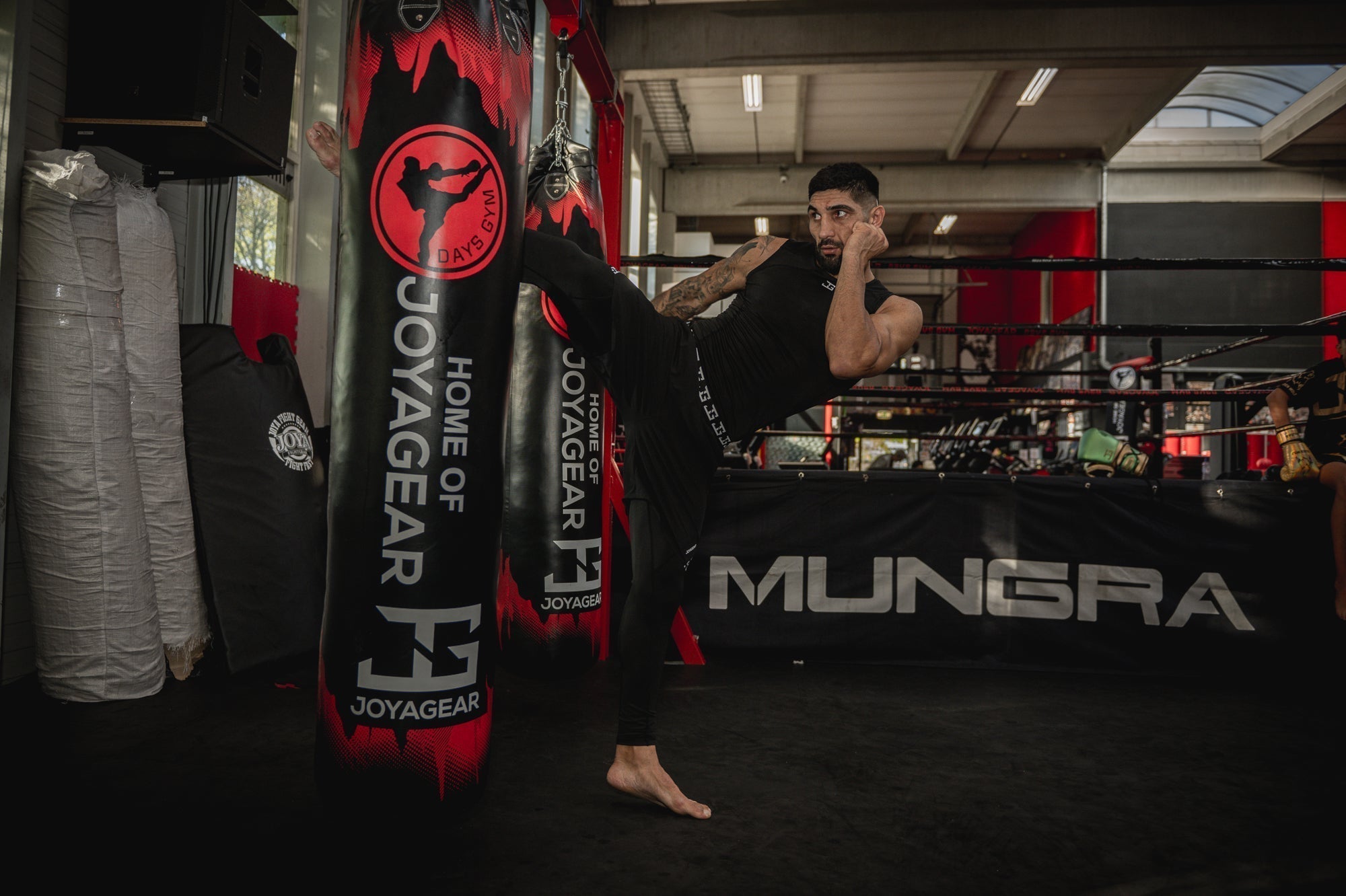Tips for the beginning martial artist

If you're just starting out with boxing or kickboxing, it can feel a little overwhelming. There’s a lot to take in—from proper technique and fitness to finding the right gear. But don’t worry! In this blog, we’ll share some helpful tips to get you started on the right foot and help you begin your journey with confidence.
Why Kickboxing?
Kickboxing offers countless benefits, both physically and mentally. It improves your fitness, strengthens your muscles, and boosts your self-confidence. It’s also a powerful way to reduce stress and build discipline. But to truly grow in this sport, you need to train smart and efficiently.
1. Choose the Right Trainer or Gym
A strong start begins with the right guidance. An experienced trainer will help you learn proper techniques and prevent injuries. When choosing a gym, consider:
-
Are the trainers certified and experienced?
-
How’s the atmosphere? Do you feel welcome and comfortable?
-
Is there a focus on technique and safety?
A solid foundation helps you progress faster and stay motivated long-term.
2. Master the Basics: Stance and Movement

Before you throw powerful combos, you need to master your stance and balance. A proper fighting stance provides stability and speed. A few basic tips:
-
Keep your feet shoulder-width apart with one foot slightly forward.
-
Slightly bend your knees and distribute your weight evenly.
-
Keep your hands up to protect your face.
A strong foundation is essential before learning more advanced techniques.
3. Manage Your Energy Wisely
Many beginners make the mistake of using too much power and tiring quickly. Kickboxing is about efficiency and rhythm. Train your breathing and learn how to conserve energy:
-
Exhale with every punch or kick to release tension.
-
Move with control—don’t waste unnecessary energy.
-
Alternate explosive movements with moments of recovery.
By managing your energy smartly, you'll last longer in the ring.
4. Protect Yourself with the Right Gear
Good equipment is crucial to prevent injuries. Here’s what you need:
-
Gloves: Choose ones that offer solid wrist support and fit well.
-
Shin guards: Protect your shins from hard kicks and blocks.
-
Mouthguard: Essential for protecting your teeth and jaw during sparring.
-
Hand wraps: Provide extra support for your wrists and knuckles.
Invest in quality gear so you can train safely and confidently.
5. Train Your Reflexes and Defense
Kickboxing isn’t just about attacking—defense is just as important. Train your reflexes by:
-
Shadowboxing with a focus on slipping and footwork.
-
Light sparring sessions to practice reacting to attacks.
-
Reflex drills, such as dodging a fast-moving glove.
A fighter with solid defense stays in the game longer.
6. Stay Relaxed and Enjoy the Process
Many beginners unknowingly tense up, causing them to tire quickly. Train yourself to stay relaxed:
-
Focus on smooth movements instead of brute force.
-
Keep breathing and release tension after each strike.
-
Enjoy the learning process—progress takes time and patience.
Kickboxing isn’t just about winning; it’s about constant self-improvement.
7. Practice Shadowboxing Often
As a beginner, shadowboxing is one of the most effective ways to improve quickly. It might feel awkward at first—punching and kicking the air with no opponent—but this exercise sharpens your technique, speed, and coordination without any pressure.
Through regular shadowboxing, you'll become more aware of your stance, movements, and breathing. It allows you to practice combinations freely without worrying about counters. Start slow and focus on form: keep your hands high, stay light on your feet, and flow smoothly between punches and kicks.
Beyond technique, shadowboxing also boosts your cardio and muscular endurance. It’s a full-body workout that targets your shoulders, core, and legs, while building speed and reflexes. Do it regularly, and you’ll notice your movements becoming smoother and more natural.
Make shadowboxing a fixed part of your training—both at the gym and at home. Practice in front of a mirror to check your form, visualize opponents to simulate real scenarios, and experiment with different tempos. The more you do it, the faster you’ll improve and the more confident you’ll feel in the ring.
A Strong Start in Kickboxing
Whether you're a complete beginner or have just taken your first classes, the right mindset and preparation make all the difference. Build a solid foundation, train smart, and equip yourself with the right gear. With patience and dedication, you’ll see progress faster than you think.
Check out these 20 tips to improve your boxing skills!
Boxing is very different from kickboxing—but as a beginning kickboxer, it’s crucial to develop your boxing skills to the fullest!
Ready to get serious about kickboxing?
Explore our latest collection of kickboxing gear and step into the ring with confidence.
0 comments


